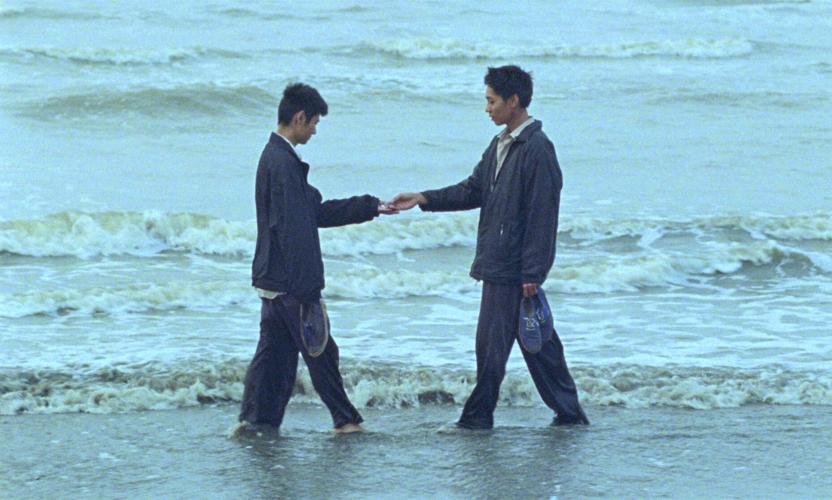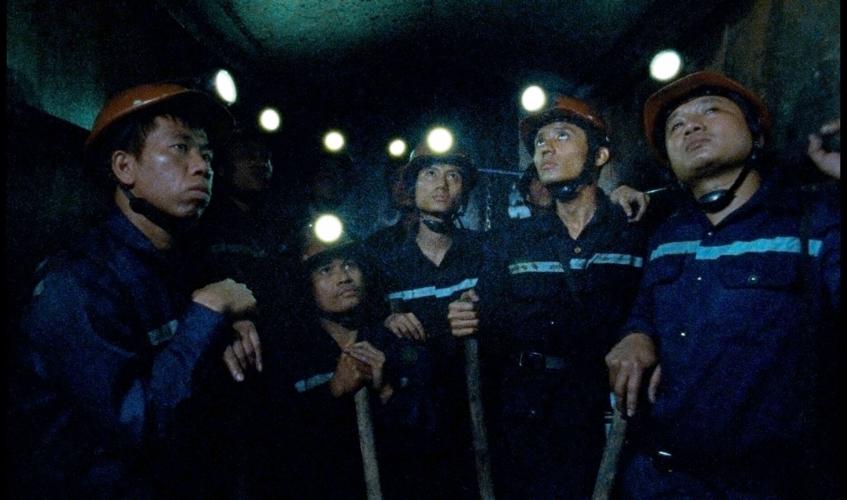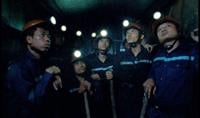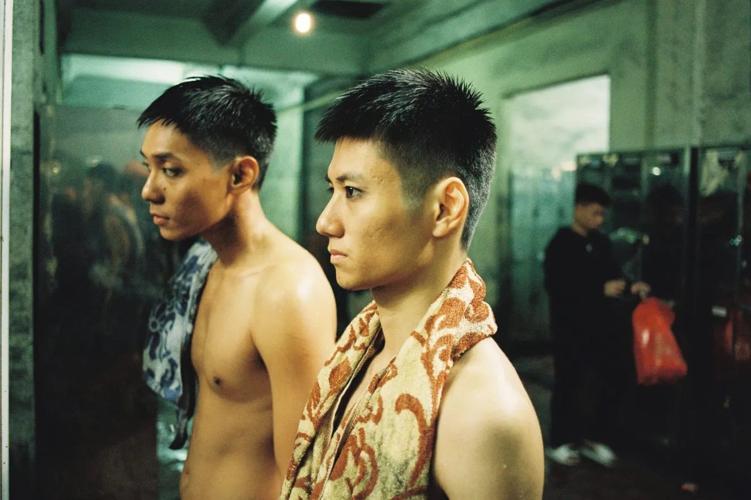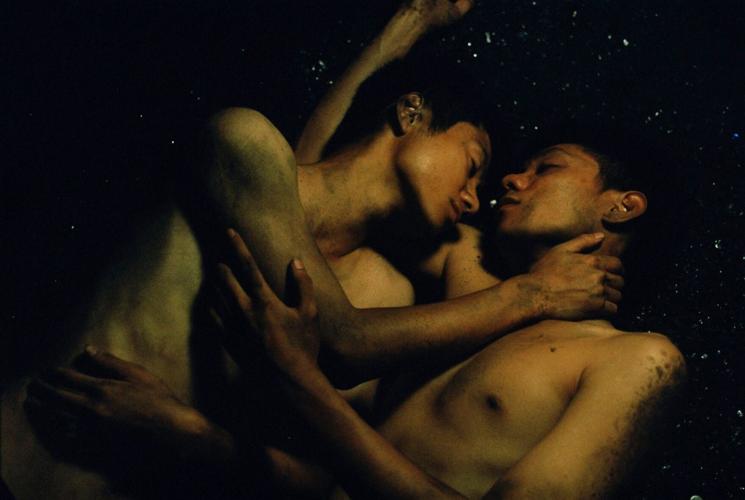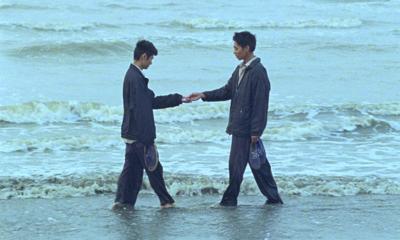This was a film that was nominated for the Queer Palm at the 77th Cannes Film Festival. The protagonists are a gay male couple, but the film isn't really about their relationship. It's barely about them at all. It's more about painting a picture of Vietnam in the late 20th or early 21st century, as the country is dealing with the aftermath of the war, which ended in 1975 and the economic issues that plagued the nation in the decades that followed. Writer-director Minh Quy Trong centers the film on a group who are highly impoverished. The gay protagonists are dirt poor. Whether it's the lingering trauma from the war or the persistent poverty, this film is looking at how people deal with it or not.
In the film, the gay male couple are never identified by name. There aren't that many close-up shots of them. Most of the cinematography is wide-shot after wide-shot, often done with little to no camera movement. The subjects are often in the background where getting any kind of sense of their faces or facial reactions is very difficult. In effect, the director keeps us at a distance from the subjects, never allowing us to get to know them any deeper. There is somewhat of a plot involving the gay couple, but it's almost incidental to what becomes a rather detached or unemotional elegy.

Coal mining is one of the main industries in Vietnam. The film starts with two young men in their early to mid-20's. The two men work in a coal mine. Coal mining is a big business, but the two men don't seem to earn that much money. One of the men lives with his mother and their dwelling looks like a burned-out shack. It doesn't have a proper roof that doesn't protect them from the rain, which too much floods the house. The home also doesn't seem to have electricity or barely any plumbing. The mother sells briquettes of coal from that house, which possibly presents health hazards to their lungs.
Because her son wants a better life, one that's not so destitute where he can possibly make more money, he decides to leave the country. The film never really specifies where he plans to go. There's never any explanation as to why he doesn't simply move to a city like Hanoi or Ho Chi Minh. There's never any explanation as to why he has to immigrate to a whole different nation-state. There's some implication that he might travel by land, but the end of the film reveals he's traveling by sea, which adds a level of danger and treachery that the film doesn't develop. We don't know why he chose this mode of transportation or how long it would take or what he would need or what the plan was when he arrived, so there's no tether to make us care about this trip much at all.

It's obvious that the filmmaker doesn't care because it's tacked-on at the very end. A large chunk of this film is instead the mother searching for the body or remains of her husband. At first, it seems as if her husband did what her son is going to do, which is immigrate to another place. Yet, it's revealed that her husband was a veteran who died on the battlefield. There is a reference to the 9/11 terrorist attack in the United States, which means the year is 2001. If the war ended in 1975, then it means the body has been missing for over 15 years. It's curious as to why she's waited this long to try to find her husband's remains. There's no insight into her in that regard.
However, the remnants of her husband aren't the only remains that this film exposes. There's a scene where the characters visit a museum where the remains or literal skeletons, skulls and other bones, are in an exhibit. There's even a field where the remains of bombs or missiles are shown. As such, this film feels more like the psychical effects of the Vietnam War that most American audiences never see in Hollywood productions.

Viêt and Nam.
Not Rated but contains sexual situations and full-frontal nudity.
Running Time: 2 hrs. and 9 mins.
Available on VOD.

